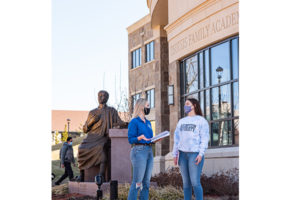Alison Cares, Ph.D.
Associate Professor of Sociology and Criminology
 Education
Education
Ph.D., The Pennsylvania State University, 2005
M.A., The Pennsylvania State University, 2002
A.B., Dartmouth College, 1995
Classes Taught at Assumption
Criminal Courts & Society
Criminology
Internship Seminar
Principles of Sociology
Research Methods
Victimology
What is the most challenging aspect of teaching criminology?
Helping students unlearn all the myths about crime, victims, and why crime happens. The biggest enemies for me are the news and entertainment media. Often, my students who are most interested in crime have been heavy consumers of crime-related shows on TV; while these shows have some elements of fact in them, they perpetuate misunderstandings about crime and the criminal justice system.
What sparked your interest in this field?
As an undergraduate, I took a course on women, politics, and the law. It was the first time I had been exposed to the topic of domestic violence. Soon after college, I did community outreach at a sexual and domestic violence services agency. We were all so passionate about our work, but there was so much we didn’t know. That’s what motivated me to go to graduate school.
How do you build connections with your students?
They are important to me as students and as people, now and after they graduate. I try to build connections by learning about them as a whole person. In a bit of criminology humor, I tell them being my student is a life sentence. Even after they’re done taking my course, I’m still a resource for them.
There is much controversy today regarding the criminal justice system; how do you discuss and work through these issues in the classroom?
The gulf between the ideal and the reality of the criminal justice system is vast. This can be a harsh reality for students to face. We spend a lot of time looking at statistics that reflect racial and class disparity and the structural and societal reasons for that disparity. The hard work is in pushing students to come up with realistic solutions to the issues the criminal justice system both faces and creates. The answers are not easy, but the stakes are high so we have to figure this out.
What is one thing about you that would come as a surprise to those that know you?
I used to run pretty fast over long distances. Just do not ask me to do that now.
You’re known for your candy bucket. There must be a story.
When my daughter was 4, she went to a daycare at a large company, and on Halloween, the kids trick-or-treated through the entire facility and received exorbitant amounts of candy. I brought most of it in to my students and it was a hit. Over the years, it grew into having candy year-round, and hence the bucket was born. The rule is that once you have met me, you can help yourself to the candy bucket. A little chocolate can be a big help on a tough day or a way to celebrate on a good one.


